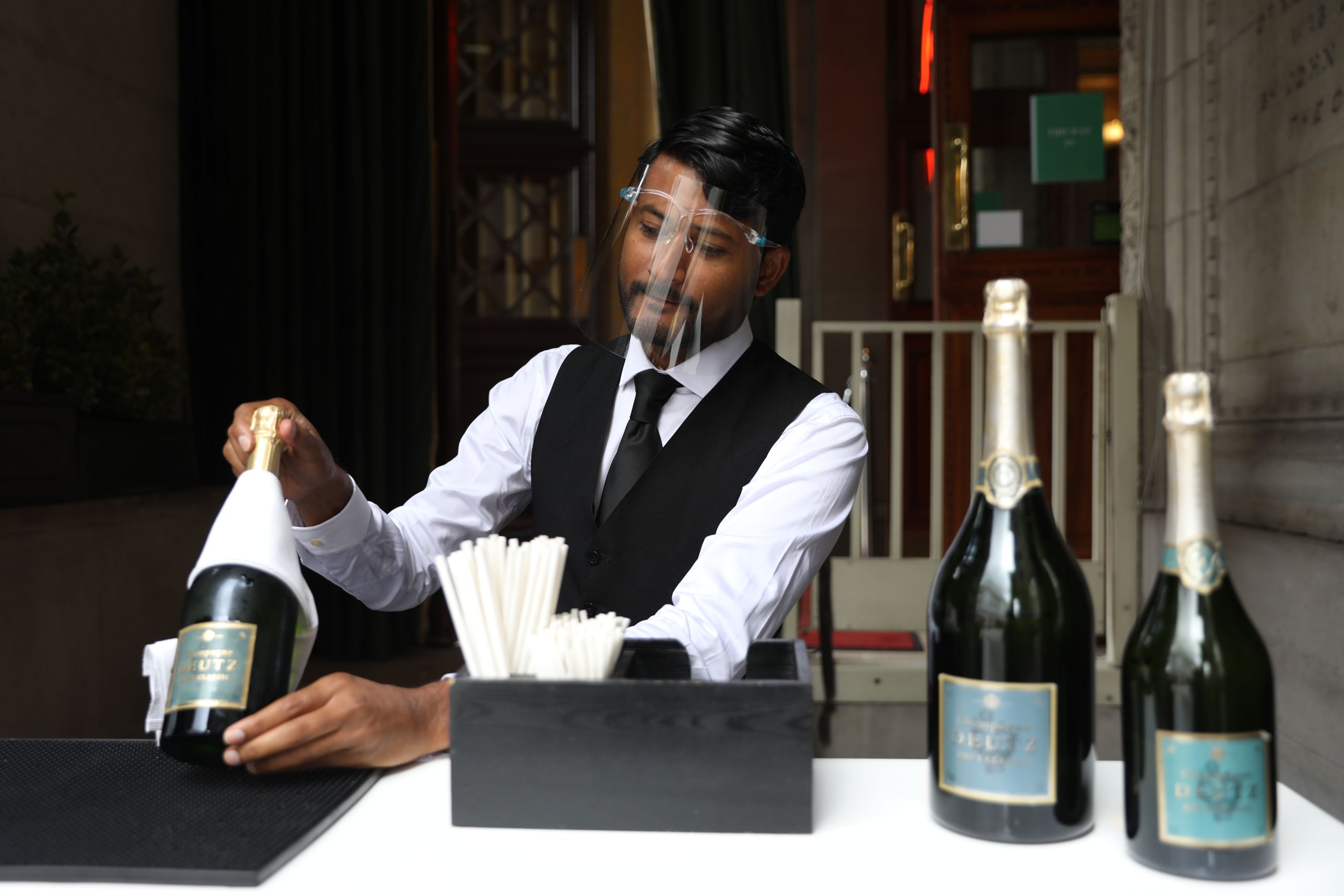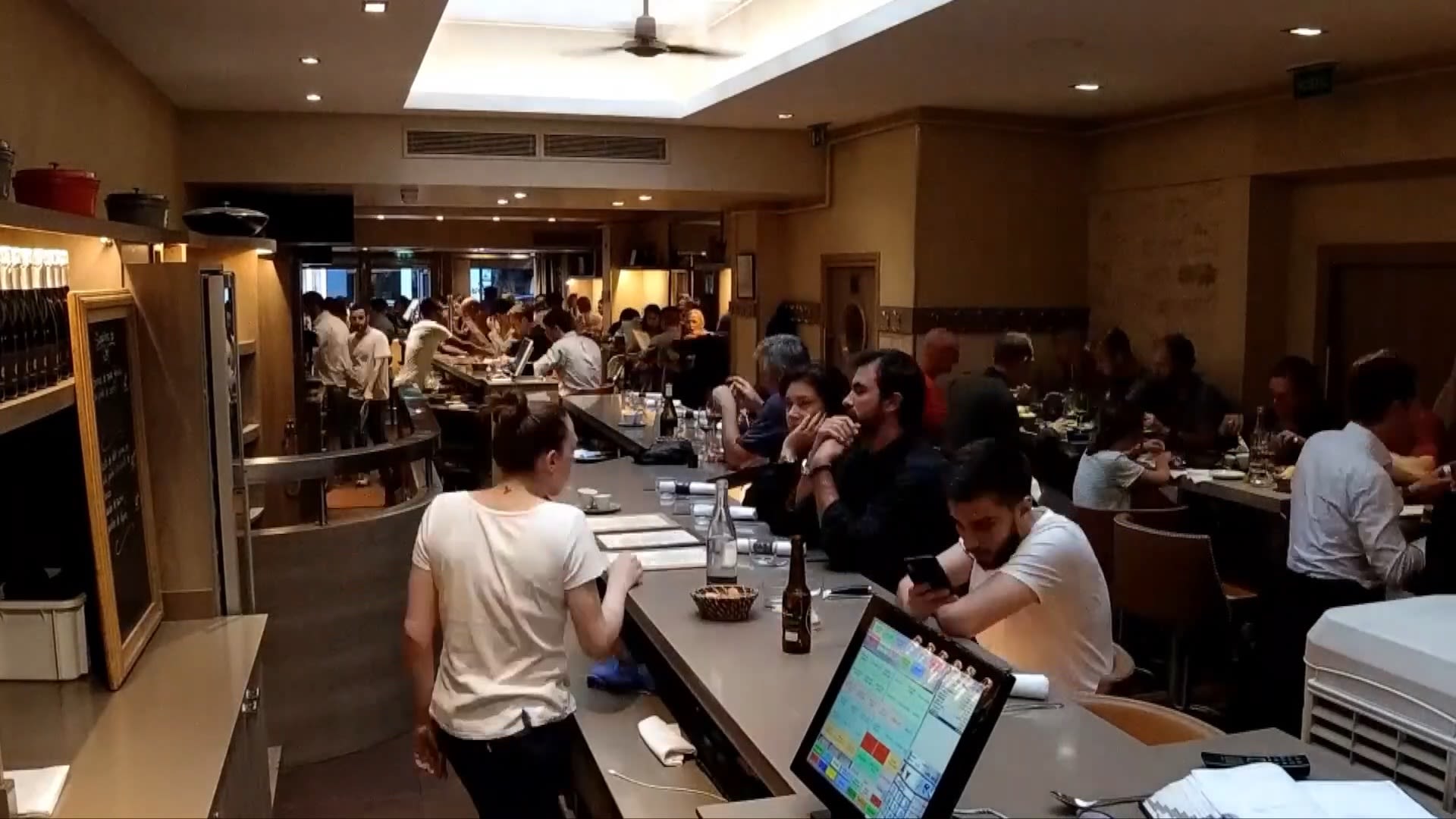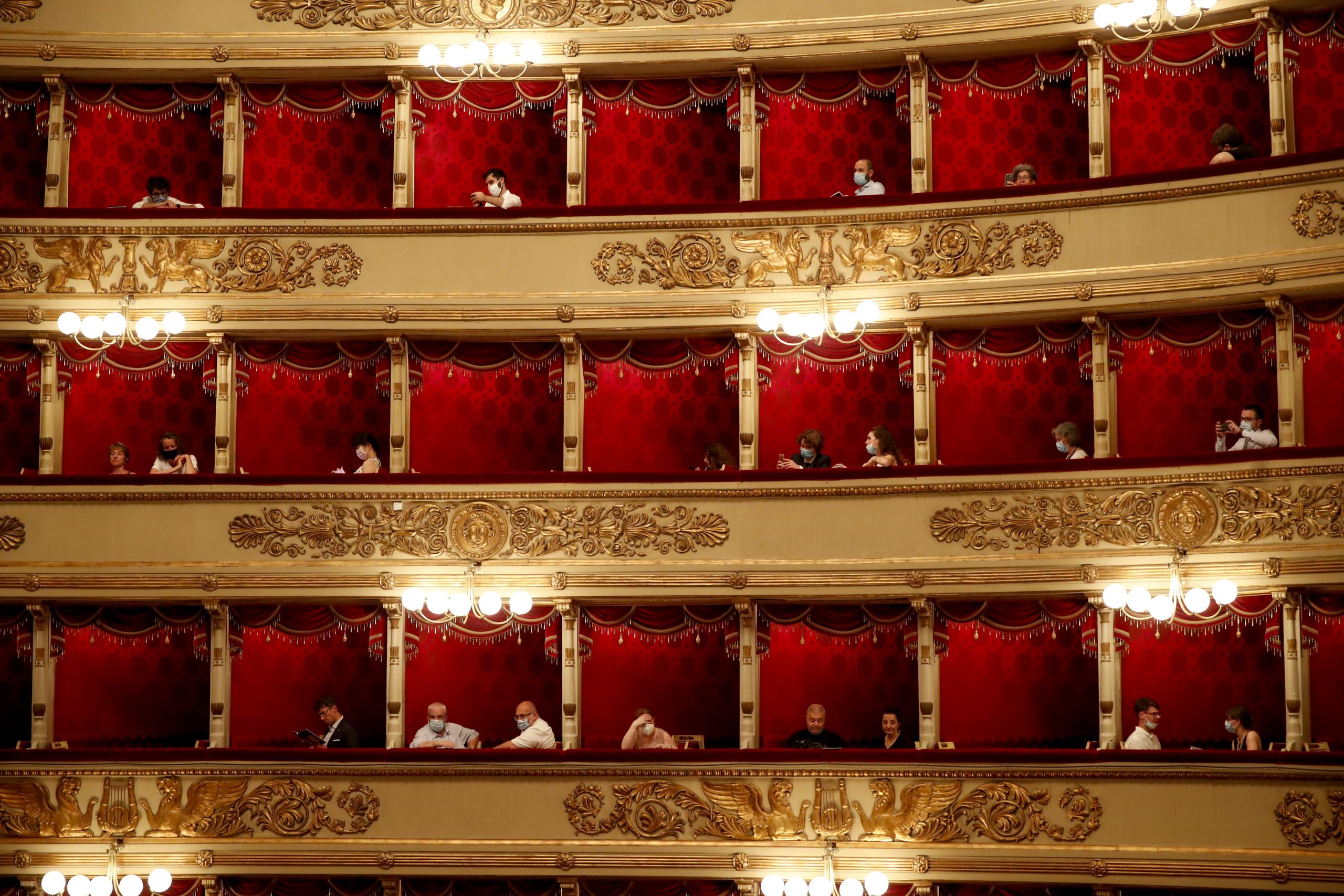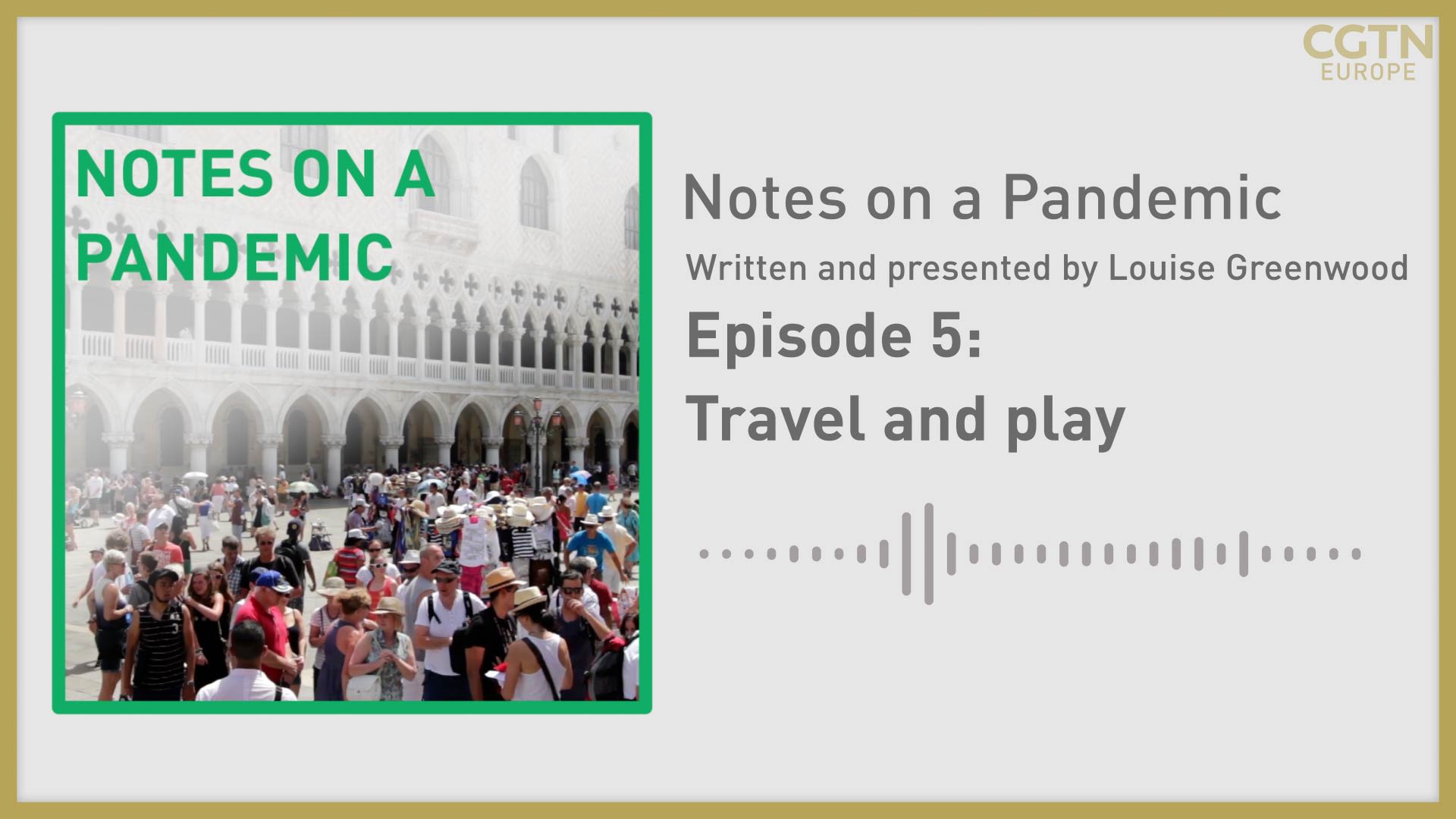Hospitality & leisure
How businesses have tried to tempt us out to play again

Introduction: A new way to play
When the pandemic caused widespread lockdowns, many worried about work – after all, we all need to put food on the table. But what about when we want to eat at a restaurant table? Not only were we curtailed at work, but also at play; our leisure pursuits were circumscribed by necessity – and, in turn, that had a huge effect on the many people who are employed in the service industries.
And so began a new way of thinking as businesses struggled to survive, let alone thrive. From cafes and restaurants to pubs and hotels, leisure destinations had to rethink their offerings – as did similar industries such as theater, which also relied on us spending our spare time and money. The "new normal" may be very different, but everyone's got to earn their corn – and CGTN Europe explored the ways they're trying to do that.
The flexible French restaurant
Chef Christian Constant walked away from his Michelin stars to open a more casual dining experience – a bistro specializing in casseroles, near to the Eiffel Tower in Paris. COVID-19 closures prompted him to expand the bistro's outdoor terrace, and when its doors were opened he served wary customers by adding picnics and platters to the takeaway menu.
Meanwhile, the entire kitchen staff have stayed very active on Facebook, posting personalized updates and videos on how to cook their dishes at home. CGTN's Ross Cullen pulled up a chair and chewed the fat with the flexible restaurateurs.
Domestic affairs
COVID-19 has been disastrous even for the prettiest locations – especially so if they rely on foreign tourism. In the picturesque southwest German town of Heidelberg, the burghers decided to save their summer by focusing on domestic tourism... and it's a gamble that has paid off.
While nobody is pretending it's a bumper year, the decision by many people to holiday within their own country has provided the lifeline that tourism businesses needed. CGTN Europe's John Bevir checked in.

Reinventing drama on the street
With French theaters still closed, a group of actors and playwrights in Paris have tried to reinvent their shows, so they can continue to put on performances while adhering to social-distancing and sanitary measures.
Their new play is called Contact – but ironically, there's none involved. It's a new form of theater created ad hoc for post-lockdown times: immersive but socially-distanced silent acting.
The city acts as the stage as the actors move through its streets, accompanied only by the buzz of a Parisian evening and followed by the audience, listening along to the pre-recorded script. CGTN Europe’s Ross Cullen joined the mobile audience.
From tour guide to waffle truck
When Hungarian tour guide Marton Kiss was laid off for two months by his employers, he used his spare time – and considerable handyman skills – to build a potential new career. He had always wanted to create his own food truck selling waffles and ice cream, and as the two-month layoff became four and then six, he got busy.
Now he's hopeful of gaining a prime spot in Budapest and making the most of resurgent domestic tourism. CGTN Europe's Isobel Ewing joined the queue.

The New Normal: Hospitality
With cafes, bars and restaurants forced to close and the streets deserted, many workers in the hospitality sector have been furloughed – or have been placed on other job-protection schemes. Business owners and suppliers have faced a difficult situation with produce, including bartenders and publicans who have been forced to throw gallons of beer down the drain. So what is next for the industry?
CGTN asked a chef, a waiter and an industry representative what the lockdown meant for them and what they thought governments and businesses could do in the future to make hospitality hospitable again.
Alpar Bodo is a waiter at Kino Cafe in the Hungarian capital Budapest. After three months waiting at home, rather than waiting on tables, he's glad to be back. But he said restrictions and new regulations risked putting off customers. So, even though it's better than having to rely on his wife to support their family with only one income, it's not quite back to normal.
Pascal Aussignac is a Michelin-starred chef at Club Gascon in London. His group of restaurants, bistros and a delicatessen focus on the culinary style of Gascony, a region in southern France. He's been able to keep working on take-away food from his kitchen, but has been forced to furlough nearly all his staff.
Kate Nicholls is the CEO of UK Hospitality, which represents more than 700 companies in a sector that employs 2.9 million people. In many ways, she is the voice of British restaurants and nightlife, so she has been busy communicating what the industry needs and ensuring the government does not put the sector at risk – either health-wise or financially.
The New Normal: Leisure
The leisure industry came to a standstill during the pandemic as gyms, swimming pools and other leisure facilities across Europe were forced to shut their doors to customers.
As lockdowns begin to ease across the continent, some leisure facilities have now been able to reopen, but are operating with strict COVID-19 rules and regulations in place.
CGTN Europe spoke exclusively to a gym owner, a weight lifter and a personal trainer about their challenges during the pandemic and discussed what the future holds for the struggling industry.
Alex Marks is the owner and manager of On Your Marks fitness in London, UK. He manages seven personal trainers in a private studio and after months of having to train from home, he's glad to be back. Alex thinks the period of upheaval could be turned into a positive future for the leisure industry, but has called on the government not to shut gyms again in the event of a second lockdown.
Aitor Zabaleta-Korta is a personal trainer in the Basque region of Spain. He explains how his business dipped during lockdown as people could not afford to pay for his services. But he has seen a large rise in online customers via his Instagram page as people recognize they don't have to be in a gym to train.
Olivia Thomson is a UK-based weightlifter who has been training consistently for the past six years, specializing in CrossFit and Olympic bar weightlifting. She speaks about her struggles with not being able to go to the gym and how she has overcome these by innovating with everyday items at her family home.
The New Normal: Leisure
The leisure industry came to a standstill during the pandemic as gyms, swimming pools and other leisure facilities across Europe were forced to shut their doors to customers.
As lockdowns begin to ease across the continent, some leisure facilities have now been able to reopen, but are operating with strict COVID-19 rules and regulations in place.
CGTN Europe spoke exclusively to a gym owner, a weight lifter and a personal trainer about their challenges during the pandemic and discussed what the future holds for the struggling industry.
Alex Marks is the owner and manager of On Your Marks fitness in London, UK. He manages seven personal trainers in a private studio and after months of having to train from home, he's glad to be back. Alex thinks the period of upheaval could be turned into a positive future for the leisure industry, but has called on the government not to shut gyms again in the event of a second lockdown.
Aitor Zabaleta-Korta is a personal trainer in the Basque region of Spain. He explains how his business dipped during lockdown as people could not afford to pay for his services. But he has seen a large rise in online customers via his Instagram page as people recognize they don't have to be in a gym to train.
Olivia Thomson is a UK-based weightlifter who has been training consistently for the past six years, specializing in CrossFit and Olympic bar weightlifting. She speaks about her struggles with not being able to go to the gym and how she has overcome these by innovating with everyday items at her family home.

The New Normal: Aviation
With passenger traffic dropping sharply as the pandemic spread, stringent lockdowns and travel restrictions left airlines reeling. The feeling of despondency became evident as multiple carriers urge for bailouts and other forms of assistance from governments.
To understand more about how airlines are trying to deal with the crisis, CGTN Europe asked an airline executive, a union leader and passengers to discuss the pressing issues and what the future holds for the beleaguered sector.
Owain Jones is the managing director of Wizz Air UK, a Hungarian low-cost airline. The carrier has been affected by the fallout of the outbreak but still continues to fly and remains hopeful that the situation will improve with time.
Stefan Schwerthelm, a board member of the German flight attendant union UFO, spells out clearly the challenges faced by operators and the urgent measures required to instil confidence in passengers and protect the interests of staff.
We also spoke to passengers at Madrid's Barajas airport to get an idea of the troubles faced by many of them. Rafael Martinez lives on the island of Fuerteventura and was trying to get home to visit his sick mother in northwest Spain. Rafael expressed concerns about how air travel might change in the foreseeable future and raised a series of pertinent points that need to be addressed by the airline management and authorities.
The New Normal: Tourism
COVID-19 ruined many a holiday dream, but it also cursed many who rely on the tourism industry. Hotels and bed & breakfasts were forced to shut their doors for months, and tourist-sector workers have been furloughed or lost their jobs entirely.
The lifting of lockdowns has prompted a limited and tentative return to travel, but both travelers and industry workers will need to adapt to a "new normal" as long as a COVID-19 vaccine isn't available.
CGTN Europe talked about how this might look like with a couple of professional holidaymakers, a hotel manager and a travel industry representative.
Stefan Arestis and Sebastien Chaneac are travel bloggers. Partners in business and in life, together they travel around the world and write about the different gay scenes of the places they visit on their blog Nomadic Boys. Living between the UK and Cyprus, they chose to spend their lockdown on the Mediterranean island.
Charlie Islam-Harry is the hotel manager at the St. Giles Heathrow Hotel in London, UK. During the worst of lockdown the hotel has remained closed, and it's now scheduled to reopen at the end of August. Islam-Harry is preparing for reopening by putting COVID-19 safety measures in place at the hotel.
Gloria Guevara is president and CEO of the World Travel & Tourism Council, a non-profit organization based in London which represents the global private tourism and travel sector. She has been very vocal about the support needed by the sector to survive this crisis.
The New Normal: Tourism
COVID-19 ruined many a holiday dream, but it also cursed many who rely on the tourism industry. Hotels and bed & breakfasts were forced to shut their doors for months, and tourist-sector workers have been furloughed or lost their jobs entirely.
The lifting of lockdowns has prompted a limited and tentative return to travel, but both travelers and industry workers will need to adapt to a "new normal" as long as a COVID-19 vaccine isn't available.
CGTN Europe talked about how this might look like with a couple of professional holidaymakers, a hotel manager and a travel industry representative.
Stefan Arestis and Sebastien Chaneac are travel bloggers. Partners in business and in life, together they travel around the world and write about the different gay scenes of the places they visit on their blog Nomadic Boys. Living between the UK and Cyprus, they chose to spend their lockdown on the Mediterranean island.
Charlie Islam-Harry is the hotel manager at the St. Giles Heathrow Hotel in London, UK. During the worst of lockdown the hotel has remained closed, and it's now scheduled to reopen at the end of August. Islam-Harry is preparing for reopening by putting COVID-19 safety measures in place at the hotel.
Gloria Guevara is president and CEO of the World Travel & Tourism Council, a non-profit organization based in London which represents the global private tourism and travel sector. She has been very vocal about the support needed by the sector to survive this crisis.
Podcast: Travel and play
What might holidays in the future look like, and how can we better balance the needs of supply and demand as tourism continues to rise along with income in new markets?
Mothballed planes, closed airports and quarantined cruise liners temporarily ended the problem of "overtourism" and prompted some to consider a rethink of the entire travel industry.

